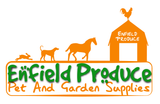AQUAPERL is a specially formulated perlite developed explicitly for the aquatics industry. Perlite is an important filtration medium used for the clarification of beverages, including beer, wine, and fruit juices, as well as for swimming pool and other water filtration applications.
Perlite is a generic name for a naturally occurring siliceous volcanic rock.
A unique property of perlite is that it expands up to 20 times its original volume when heated to its softening range. This expansion is caused by water in the crude rock. When perlite ore is rapidly heated above 850°C, the water vaporises, causing the softened rock to expand. Tiny glass-like bubbles are produced, which account for the lightweight and exceptional physical properties of expanded perlite.
It is these lightweight glass-like bubbles that are milled and classified under stringent quality-controlled conditions to produce perlite filter aids. These perlite filter aids exhibit a unique, jagged, interlocking structure with a myriad of microscopic channels, affording optimum flow rates and clarity for a wide variety of applications.
Size Guide:
Aquaperl in 4.5kg & 10kg: A standard filter product ideal for most domestic swimming pools
Aquaperl PLUS in 4.5kg & 10kg: A high-performance filter product for commercial or high-performance filters
More Information:
Perlite filter aids do not impart taste, colour or odour to liquids being filtered, and they are virtually insoluble in mineral and organic acids at all temperatures.
Comparative products such as diatomaceous earth (DE), sand and zeolite are also used in filtration. DE can contain high levels of crystalline silica.
DE, sand and zeolite are much heavier than perlite and for products sold by the kilogram, this often makes them more expensive than perlite (perlite is at least 30 per cent lighter than these competing materials).
Because perlite is a GRAS (Generally Recognised as Safe) substance, it can be easily disposed of.
AUSPERL is the primary supplier of perlite filter media in Australia and New Zealand. Products are matched to client requirements.
Manufacturing takes place in Sydney, where a disciplined testing regime ensures that the product is highly consistent.
AQUAPERL is supplied for home or commercial use and is available in 10kg bags.
Removal of Cryptosporidium:
The Journal of Environmental Engineering concluded that adding 1.2kg/m2 (0.25lb/ft.) of perlite to a sand filter significantly improved the removal of 5-um microspheres.
Previous research indicated that these microspheres serve as a reasonable surrogate for Cryptosporidium Oocysts in pool water.
Removal efficacy averaged less than 20% in sand filters without perlite, but the mean removal increased to 98% when perlite was added.
Replacement of Diatomaceous Earth
Unlike diatomaceous earth (DE), perlite is deemed a GRAS (“Generally Recognised as Safe”) substance by the US Federal Drug Administration. Perlite is also 30% lighter than DE, meaning that 30% less product (by weight) is required to replace DE used in traditional filters. It is critical that filters are filled by volume, not weight, to ensure consistent filterability.
Because perlite is 30% lighter, it will operate at higher pressures but will require a greater backwash “burst” to circulate it through a filtration system.



